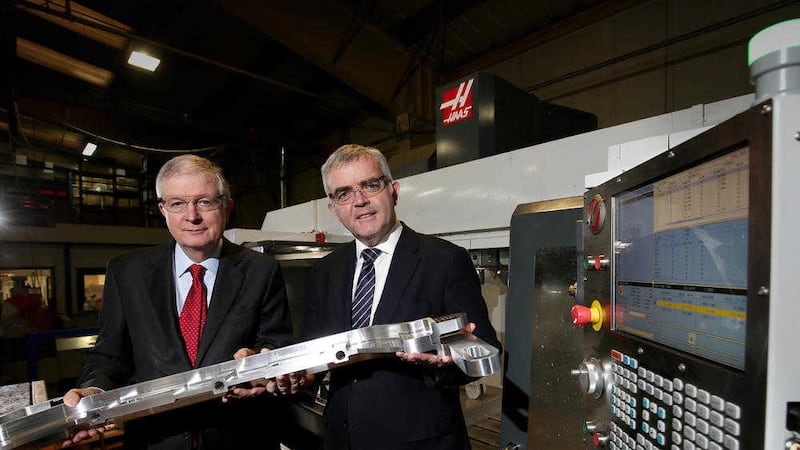A NEW group established in the wake of hundreds of job losses held its first meeting yesterday with the brief to reduce the north's prohibitive energy costs.
Announcing the creation of the Energy and Manufacturing Advisory Group, Enterprise Minister Jonathan Bell said the recent job losses in manufacturing had shown there was "no room for complacency".
The minister, who was criticised for not responding to early warning signs after Ballymena's Michelin tyre plant, cited high energy costs in its decision to close in 2018 - with the loss of 860 jobs - said the new group would produce its inaugural report by March next year.
But while the focus had been on recent job losses, Mr Bell said it should be noted that almost the same number of jobs that will be lost in Ballymena had already been gained during the last quarter, bringing the total number of manufacturing jobs in the north currently to over 80,000.
"There is no doubt we have had big knocks in manufacturing recently, but I am confident this new group will be able to identify where companies can be more competitive and how we can reduce energy costs for the manufacturing industry," he said.
"While energy costs have fallen over the last 12 to 18 months and are now at a six-year low in Northern Ireland, energy remains a significant challenge for manufacturing.
"Our job in government is to put the policies and strategies in place to support manufacturing but finding the solution to energy costs starts within manufacturing itself.
"Companies themselves are best placed to find effective energy solutions and strategies that work for them - whether it is renewable energy, combined heat and power or demand management."
Mr Bell said other areas for relief, such as business rates, could soften the impact of costs elsewhere, while completion of the north-south interconnector could bring multi-million pound reductions in annual energy costs.
The group will be supported by the Ulster University Business School and chaired by Dale Farm boss David Dobbin who said the aim was to get energy costs "as close as possible" to the lower European benchmark.
"I don't think we're going to have the lowest costs in Europe because of our periphality and the size of our market," he said, "but we will aim to keep costs as close as possible to our European competitors.
"We will be looking at a number of things such as infrastructure and what the regulator does - and that could mean changes in policy and legislation.
"But there will be limits to what we can do - whether it's state aid rules or European guidelines, the group will have to adhere to these in its recommendations."
Members include Carla Tully from generating company AES; Jackie Pollock, Unite union; Declan Billington, Thompsons; Stephen Kelly, Manufacturing NI; Bill Maginnis, NI adviser on employment and skills; Mark Sweeney, board member Invest NI and Mark Nodder from Wrightbus.
The group will report to the Minister by March 1 with recommendations to be included in the revised Economic Strategy and Strategic Energy Framework to be published by DETI later next year.



